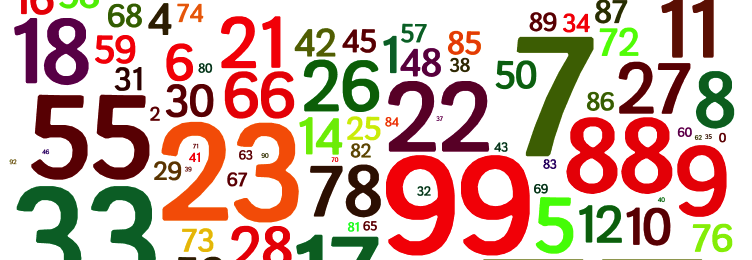Picking random numbers is much complicated than what you might think
RNG or random numbers happen to be very important in ensuring that gambling prizes are awarded in a fair manner. The best way to draw a winner from gambling is to assign each of the gamblers a number that is unique and then use a number generator in picking one the numbers to receive a prize.
But have you at once stopped to find out how the random number generation works? Choosing a number that is truly random tends to be harder than you could imaging and the following is why:
What randomness is all about and why it is important
Before you start thinking about whether the numbers being generated are random, you have to define what you mean by the term random. As per the Merriam Webster’s random definition, it is lacking a purpose; define plan, or pattern, a set that happens to have elements that have an equal occurrence probability.

It is a true definition of random numbers. When picking a winner for a prize, you want each of the participating individuals to have a chance that is equal to win. You want those who joined early in the competition or those with last names that start with a certain letter to have odds which are better of being winners. One chance equals to one entry.
When doing a multi-million casino game betting like the Powerball lottery, it becomes even important that the numbers to win have to be random for real, becoming hard to predict. Any weakness which makes the numbers to be predictable equals to making it unfair to the player which could lead to it being damn expensive for the company which is running the lottery.
Creating strong codes or cryptography happens to be another industry relying on randomness. It makes randomness to be very important in protecting passwords as well as credit cards numbers while online. If a hacker guesses the pattern, then they will break the encryption.
Human brains are not good at randomness
Try thinking about any random number between 1 – 10
Have the number in mind. If your number happens to be 3 or 7, then you are the majority. Human brains seem to be very terrible when it comes to picking any random numbers. If they were not when the above question is asked, there would be a distribution that is even between numbers 1-10. Each number would have at least a 10% of being the choice of someone and the odd and even numbers would be chosen 50% every time.
But it is hard for such to happen. The brains are set on default of picking certain numbers whenever asked such a question, either because there is a preference for certain numbers or there are some numbers which tend to feel more superior to others.
It is hard to achieve randomness as it is rarely used
IF you imagine that you are standing on top of the tallest building in the world with a bag full of leave and beneath, you have created a number grid. Try predicting which number each single leaf is going to land on if you were to drop them on a day with a breeze. It is impossible and the leaves will hit on random numbers.
